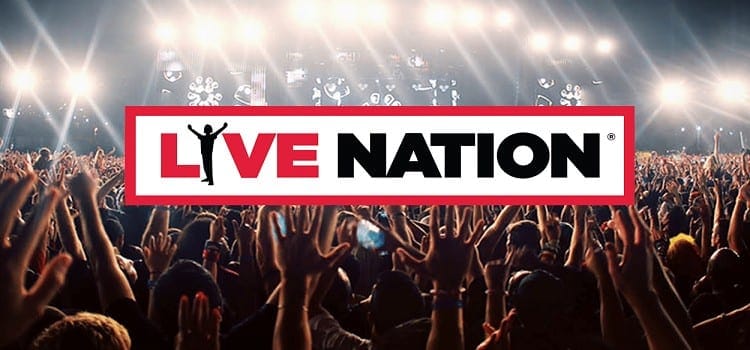A new campaign launched this week is calling on federal regulators to break up Ticketmaster and Live Nation, which merged in 2010, arguing that the combined company abuses its market power. The #breakupticketmaster campaign asks the Department of Justice to use its power to reverse the merger’s approval. Such action would force the massive promotional giant and the massive ticketing vendor to operate independently once more, would restore some level of competition to an industry that many argue is being destroyed by the monopolistic giant at its center.
“Simply put, Ticketmaster provides bad service at outrageous prices,” reads a statement regarding the campaign from the American Economic Liberties Project, one of several entities supporting the campaign. It believes that the merger gave the combined operations such a strangle-hold on the concert industry that it led to “unforgiving barriers of entry” for competitors that “leave us with a monopolistic company that can get away with ripping off music fans and strong-arming venues, all because there is nowhere else to go.”
It contends that approval by the Department of Justice of the merger is “one of the clearest examples of failed antitrust policy in recent years.”
Those who agree with the need to break up Live Nation and Ticketmaster can sign on to a petition under the headline “break up ticketmaster” on ActionNetwork.org, which already has 4,118 letters sent in the short time since it was launched. Other organizations that have signed on with the campaign include More Perfect Union, Fight Corporate Monopolies, Sports Fans Coalition, TakeItBack.org, National Consumers League, Fan Freedom and Artist Rights Alliance. A video put out by the campaigners was also released Wednesday afternoon.
The idea that the DOJ could undo the controversial merger is one that has already seen legislative support, as U.S. Rep. Bill Pascrell (D-NJ) pushed the idea earlier this year in the wake of the massive controversy surrounding the ticket price surging “dynamic” pricing Ticketmaster used with Bruce Springsteen and numerous other tours that have gone on sale of late.
For its part, Live Nation was quickly dismissive of the calls to break its alleged monopoly over the business. A spokesperson for the company told the Hollywood Reporter that live entertainment has “never been more vibrant and competitive, which is evident from the many companies that continue entering the market and growing.” She added, “We are proud of the many progressive policies we have innovated and advocated for – from to all-in pricing, transparent resale disclosures, refunds and more. We will continue working to improve the industry.”
As a part of the approval of the merger in 2010, Live Nation and Ticketmaster agreed to a consent decree that required it to follow certain rules to keep it from abusing its market power. The DOJ found the company to have violated that agreement in 2019, forcing venues to use Ticketmaster and retaliating against those that didn’t in numerous instances. But the company did not receive any significant penalty, facing just fines and an extension of the decree through 2025.
“Live Nation essentially uses its concert promotion services to bully venues away from using the few competitors that Ticketmaster still has,” states an analysis from the AELP. “If a venue opts not to use those services, Live Nation retaliates by effectively boycotting the venue. Because Live Nation controls so much of the market for concert promotion, being able to book performers who contract with Live Nation can make or break a venue’s ability to survive.”
The campaign added to an already busy week for Ticketmaster and Live Nation opponents, as the American Antitrust Institute welcomed Sen. Amy Klobuchar and a panel of industry experts to discuss the issues with the modern ticketing system – including the “deeply entrenched monopoly” that Live Nation and Ticketmaster have in place – on Thursday in Washington, D.C.




